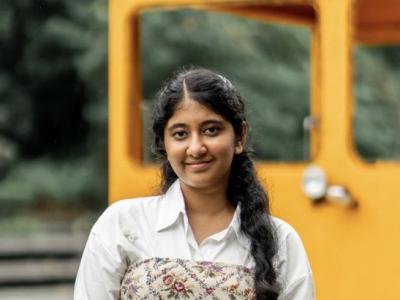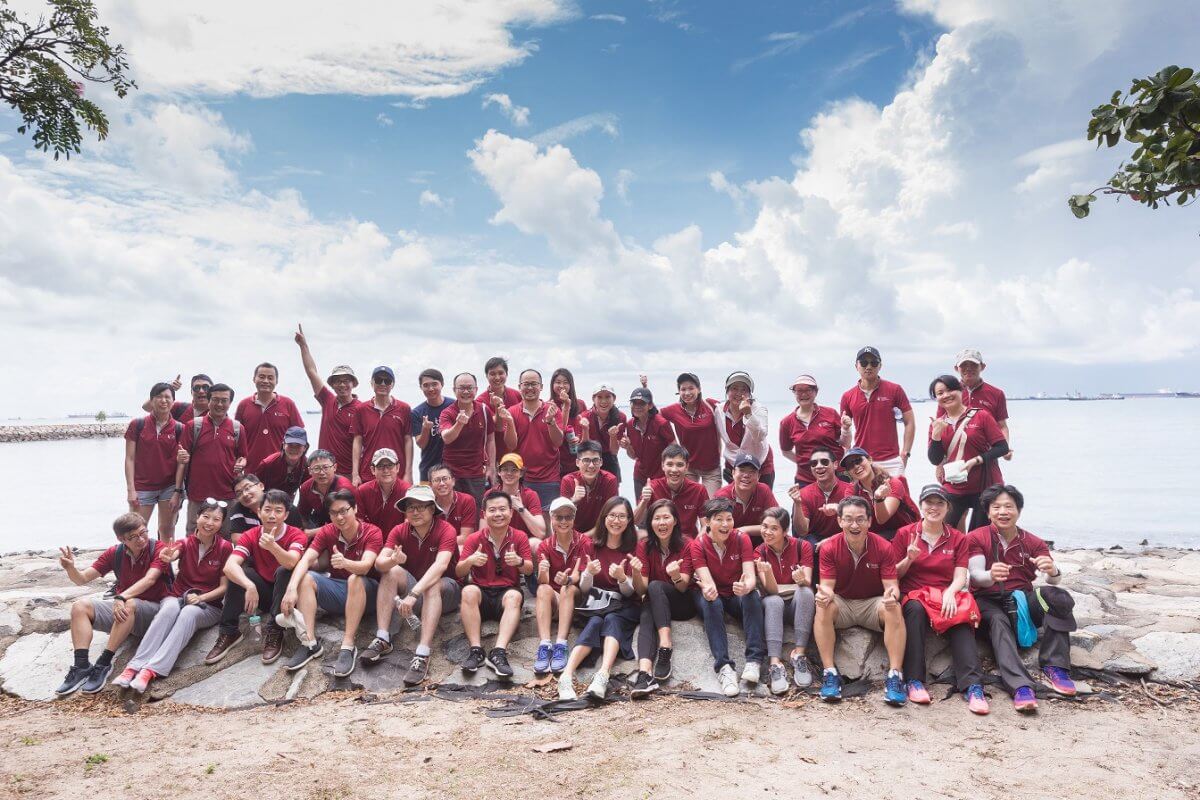
It was a perfect morning with the sun bathing the beach along Changi Coast in a warm glow and the water sparkling in the horizon. We lathered on our sunblock, whipped out our shades and caps, and… grabbed our rakes, garbage bags and sieves; all ready for our A-Typical Day at the Beach!
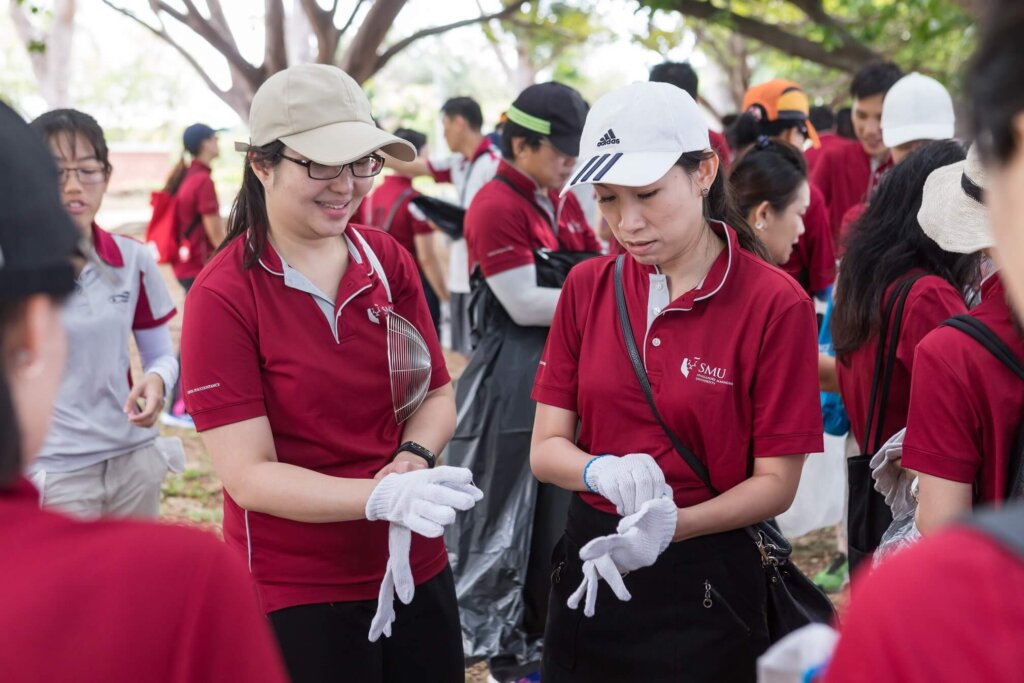
Pulling on our gloves in preparation!
For the SMU School of Accountancy (SOA) Teambuilding Event in October 2019, the faculty and staff of SOA spent the morning together at Changi Coastal Beach, but ditched the typical beach-going activities for a more meaningful cause: a beach clean-up session.
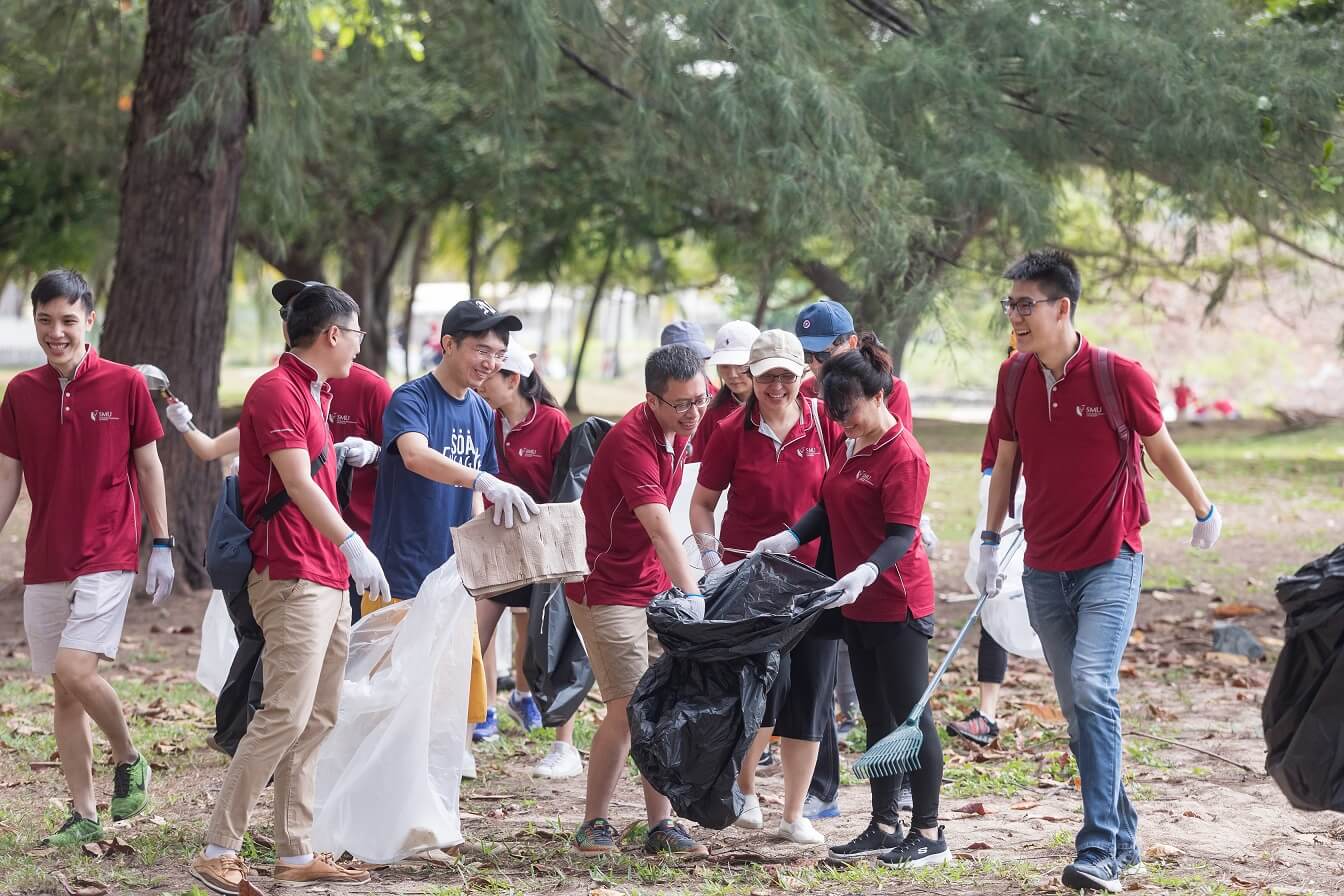
Armed with the ‘tools of the trade’
Guided by Waterways Watch Society, we were briefed on the types of trash most frequently washed up ashore and the importance of sorting plastic from other wastes. In particular, Waterways Watch Society highlighted the dangers of microplastics (literally tiny particles of plastic) which are often mistaken as food by fish and other sea creatures, with disastrous results for the ecosystem. Or worse, they may even end up on our dinner plates if we consume seafood contaminated with microplastics.
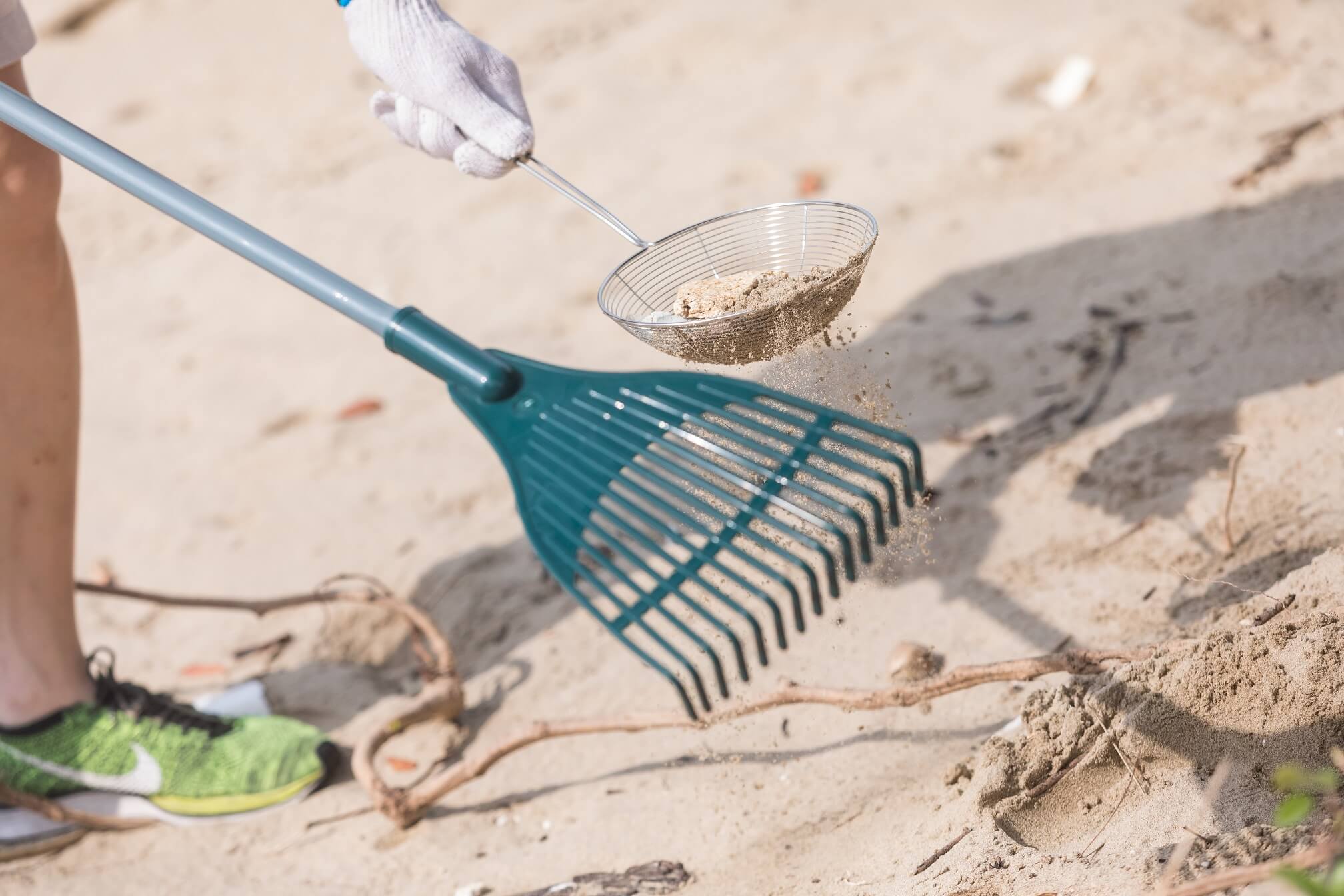
The arduous task of sieving out microplastics hidden in the sand
The message definitely hit home for the SOA volunteers as a ‘sea of maroon’, consisting of SOA faculty and staff decked in our distinctive SOA maroon colours, spread across the beach focused on various tasks. Associate Professor Jimmy Lee said, “I think this is a meaningful team-building event where the entire SOA family can bond together and save the environment at the same time.”
It is not every day that you can spot SOA professors dressed in shorts, T-shirts and caps, going down on their hands and knees to sieve out microplastics; digging in sand and mud to unearth massive broken anchor ropes, tangled fishing lines and tyres; and wading out into the water to haul in floating trash which included lost slippers and empty barrels!
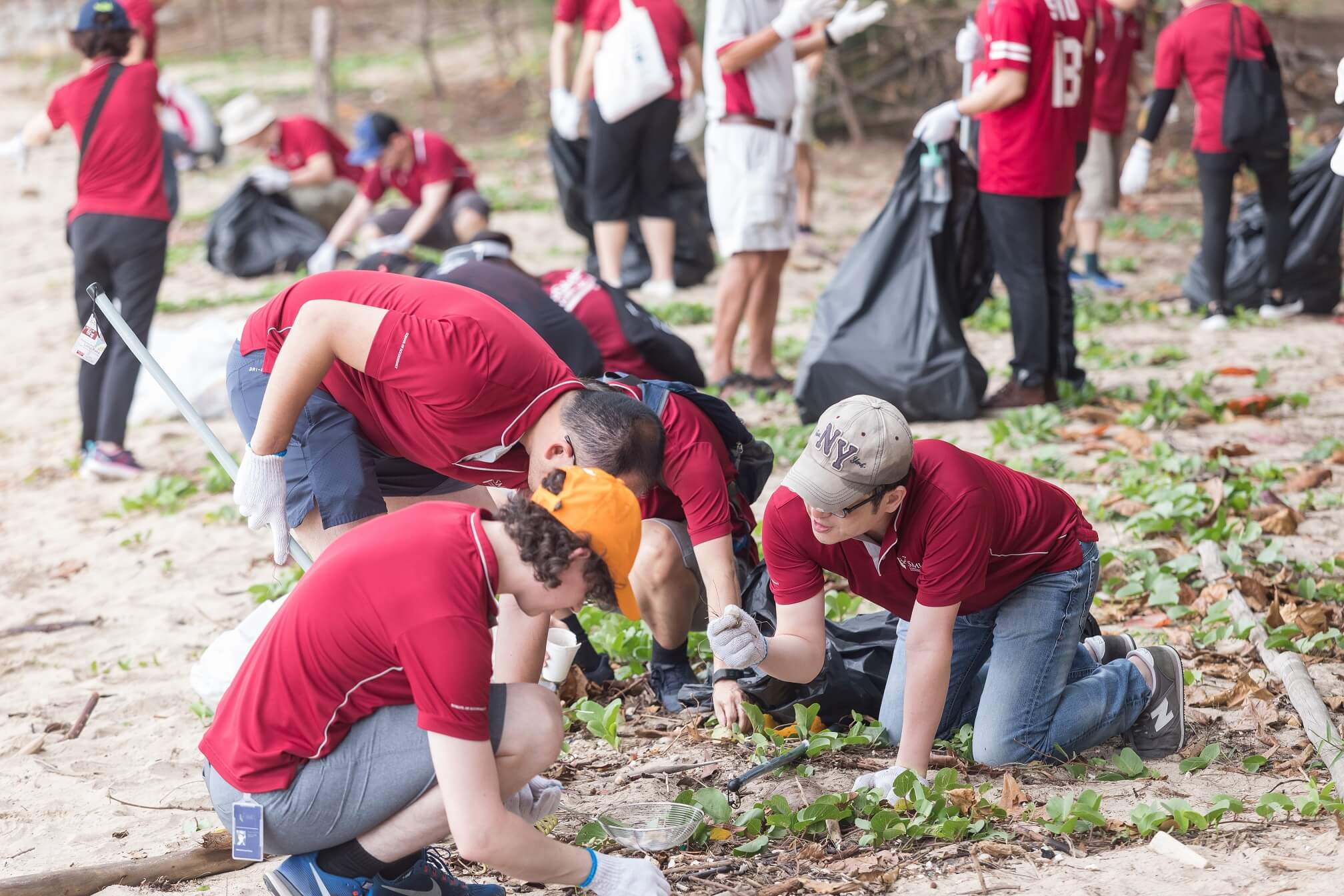
Our professors taking their tasks very seriously
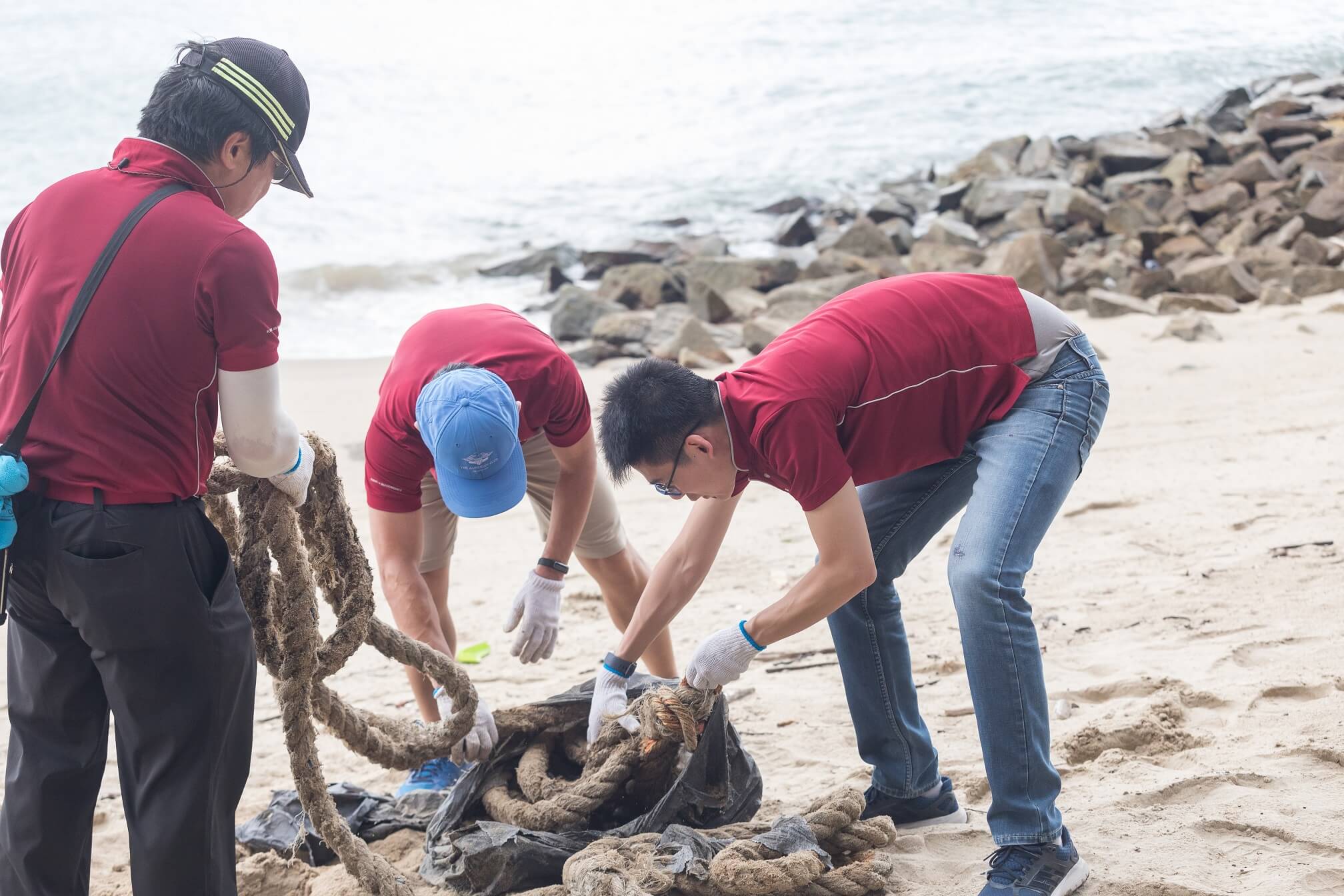
Discovering the half-buried anchor rope
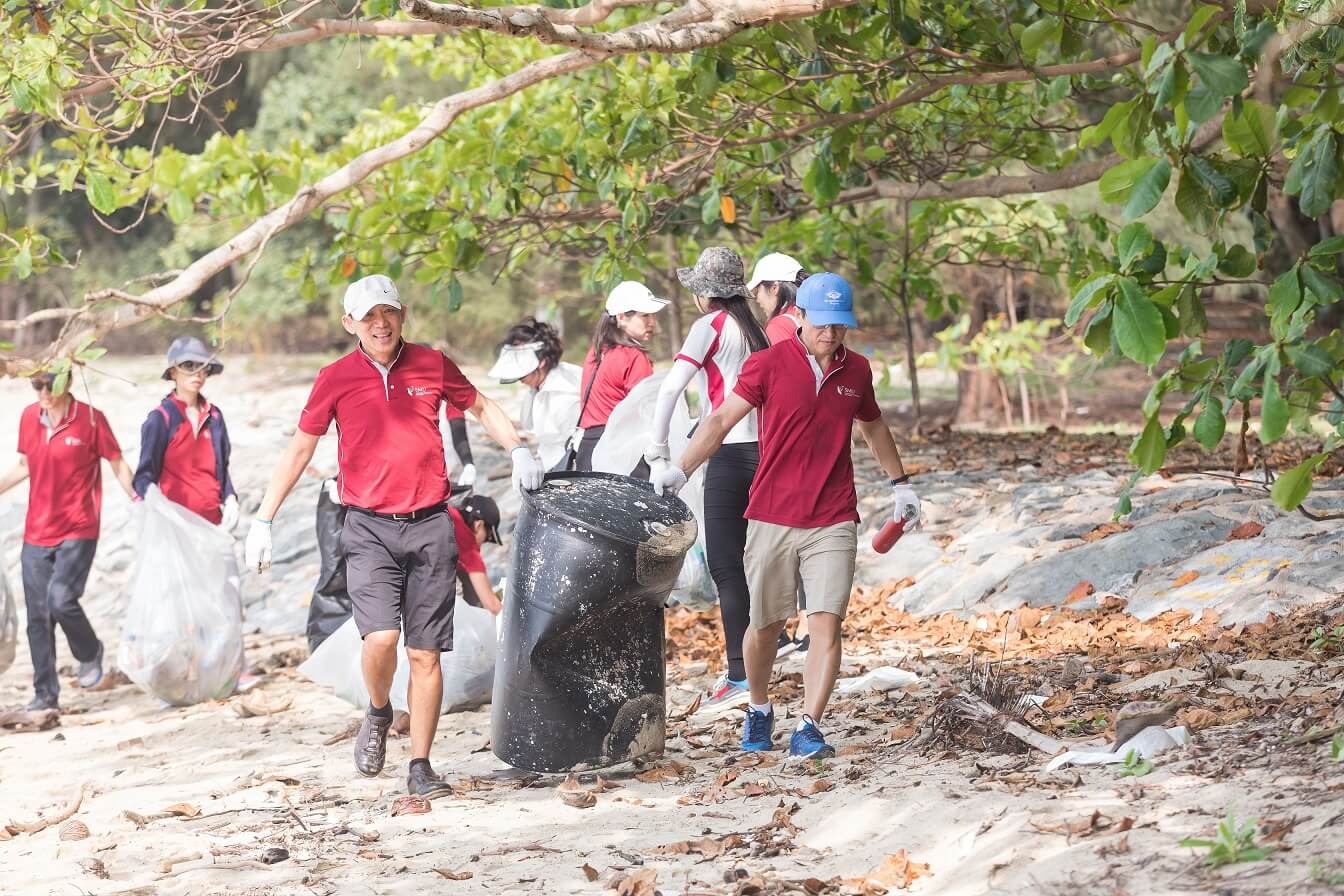
Empty barrels, lost slippers and more…
Once again our SOA spirit proved indomitable. In less than two hours, the SOA volunteers collected a total of 125kg of general waste and 130kg of plastic, which left us feeling quite ambivalent. Should we celebrate today’s achievement and our contribution to the environment? Or should we feel overwhelmed by the magnitude of the problem that enabled us to gather this amount in just one hour? Even more sobering, though, was the comment from Waterways Watch Society at our debrief: that this volume of trash was typical of any Monday morning after a weekend of beachgoers. In the larger scheme of things, this translates to about 13 tonnes of trash just on Mondays alone over a period of one year.
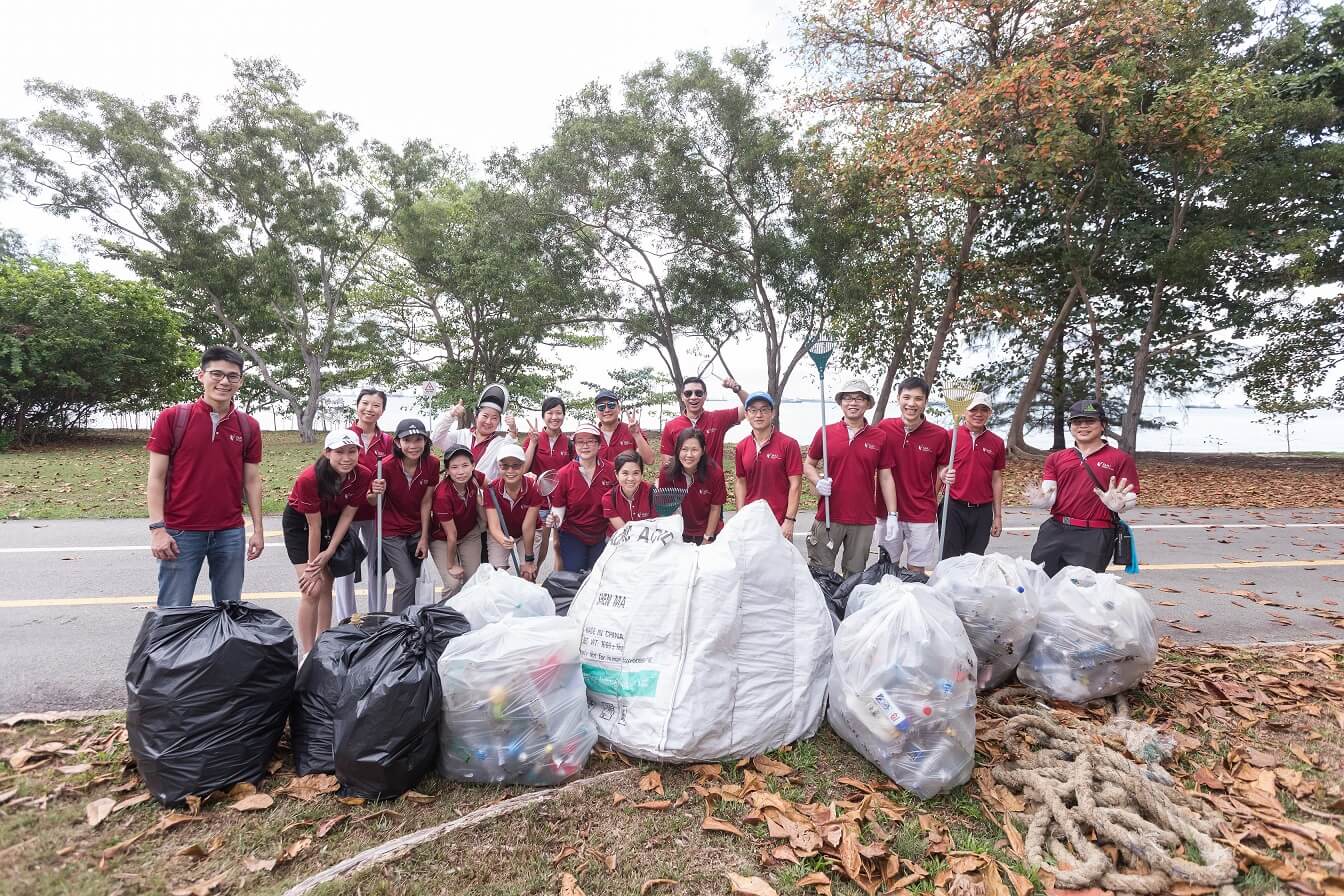
Imagine all that in less than 2 hours… and this was just one out of two SOA teams working along the beach
Regardless, it was unanimous that every SOA participant gained a sense of satisfaction and a newfound appreciation for the impact any individual can have on the environment. Associate Professor Cheng Nam Sang sums up our feelings nicely in his words, “See the Problem, Feel the Problem! Wow… So much plastic bottles and plastic bags. We really need to take care of our Mother Earth! One person would take hours to clear up the rubbish. Team effort proves to be more effective and time saving. We collected over 250kg of rubbish within two hours. Amazing!”
One thing was clear, this certainly trumped any number of sandcastles you could build, beach volleyballs you could spike or Frisbees you could throw on a typical day at the beach.


